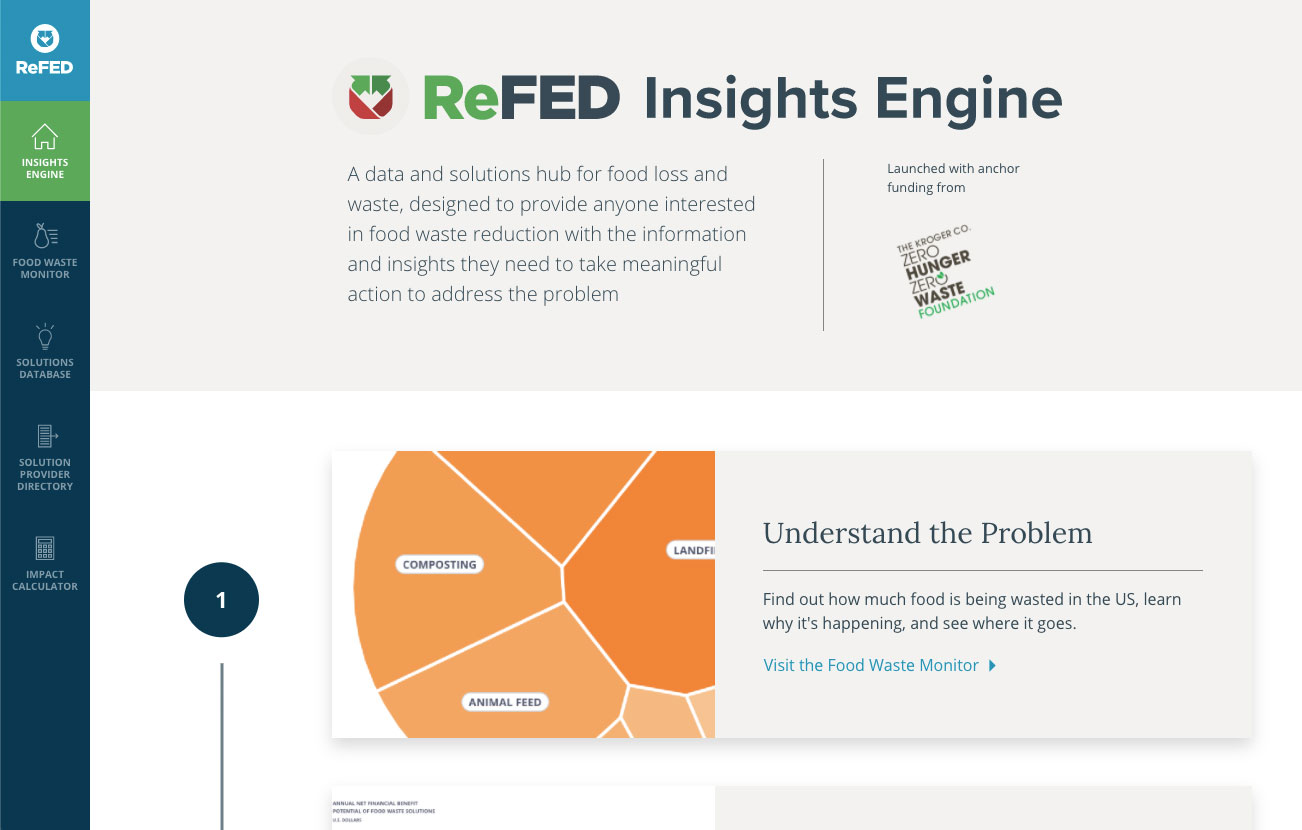Stakeholder Engagement
Overview
Mobilizing and Connecting People to Take Targeted Action
Food waste represents a unique opportunity to generate a positive financial, social, and environmental return on investment. To make that happen, it will require stakeholders to collaborate and coordinate across the value chain. ReFED facilitates this by building high-value partnerships, identifying unique groups strengths to make progress together, and incentivizing new players into the food waste space.
ReFED focuses on convening a network of influential thought leaders and decision-makers across private and public entities to enable collective action around food waste solutions and issues that require a systems-based approach. This includes managing our industry and sector partnerships, our internal and external advisory structures, and hosting cross-sector events, including the annual Food Waste Summit.
Partnerships
The food system is large, complex, and ever-evolving — requiring coordination, knowledge sharing, and creative collaboration. ReFED mobilizes several strategic partnerships, each of which brings together key players to collaboratively work towards a more sustainable, resilient, and inclusive food system. Leading and participating in these partnerships enables ReFED to cement its role as the central convener on U.S. food waste solutions and foster collective action among partners in the sector.
Pacific Coast Food Waste Commitment (PCFWC)
ReFED, alongside Cascadia Policy Solutions, WWF, and WRAP, serves as a Resource Partner for the Pacific Coast Food Waste Commitment (PCFWC), leading measurement and communications efforts. PCFWC is one of the largest public-private partnerships dedicated to food waste reduction, bringing local jurisdictions and food businesses on the West Coast together to implement measurable action to halve food waste by 2030.
By signing on to the Voluntary Agreement, signatories align with the following:
Commit: Publicly commit to and enact the West Coast regional goal to reduce and prevent wasted food by 50 percent by 2030.
Measure: Annually measure progress in reducing wasted food over time by submitting an annual Food Waste Report in accordance with a measurement framework defined by the signatories.
Act: Implement meaningful actions that reduce wasted food, with an emphasis on prevention. In addition, participate in pre-competitive and collaborative working groups to share lessons learned and best practices, demonstration projects, and develop solutions to collective challenges
Federal Agency Partnerships
On October 18, 2018, the U.S. Environmental Protection Agency (EPA), the U.S. Food and Drug Administration (FDA), and U.S. Department of Agriculture (USDA) signed a formal agreement with ReFED committing to increase collaboration and coordination in areas of mutual interest relating to the reduction of food loss and waste. This collaboration includes building connections between our respective networks of organizations working on food waste reduction, advancing data collection and measurement on progress, identifying new cross-sector collaboration opportunities, and more.
Networks
ReFED’s strength has long rested in the power of the people who surround, advise and contribute to our work. Our Advisory Council and Food Waste Action Network are comprised of individuals and organizations across the food system, who inform the ReFED’s strategic initiatives, offer technical expertise, and collectively provide a holistic analysis of the challenges and opportunities to reduce wasted food by 2030.
Events
With our central role in the U.S. food system, ReFED looks for opportunities to connect and mobilize stakeholders to share information, inspire action, and collaborate on key projects in food waste reduction.
Your Source for Data and Solutions:
The ReFED Insights Engine
ReFED Insights Engine is an online data center designed to serve as the next generation of data, insights, and guidance on U.S. food waste. With more granular data, more extensive analysis, more customized views, and the ability to be updated regularly, we see this tool as laying the foundation for action around our 2030 national goal to reduce food waste by 50 percent.






















